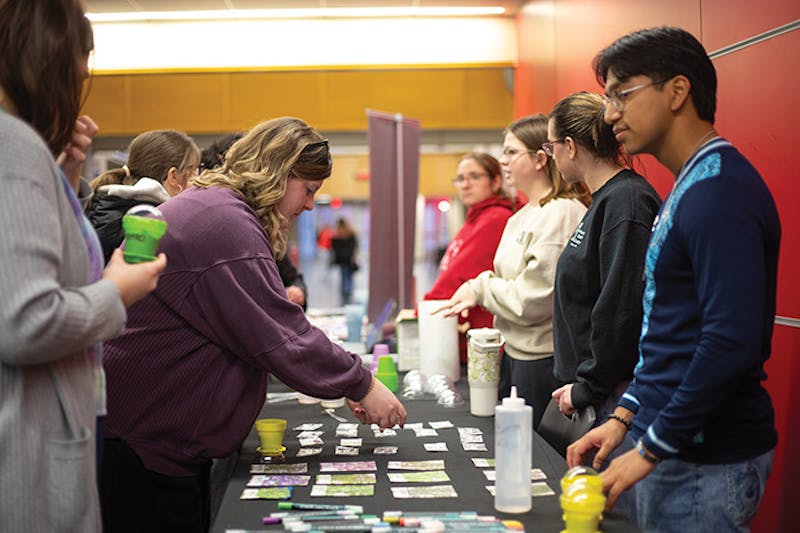In today’s society, depression is a topic that is widely ignored, and thought about as a “cry for help” or merely stress related. Although depression affects 18 percent of the U.S. population — and is one of the most common mental illnesses, according to the Anxiety and Depression Association of America (ADAA) — it is overlooked and can be hard to recognize by psychiatrists, friends and family.
Depression is like feeling that you’re hungry, but not knowing what you want to eat. But sometimes it can be silent and hidden, which is a reason why it can often go undiagnosed and lead to more underlying problems, such as anxiety disorders or suicide.
Some symptoms of depression, according to the National Institute of Mental Health, include feelings of hopelessness, guilt, worthlessness and loss of interest in doing the things they once found pleasurable.
Depression has the possibility of decreasing energy or causing fatigue, difficulty sleeping, loss of appetite and weight gain.
Studies in the Depression and Bipolar Support Alliance (DBSA), show that women experience depression twice as much as men. Although the rate is distinctly different, men are put under the radar and not considered in the dialogue about depression and therefore have fewer outlets to find support or seek help.
“Depression is the cause of over two-thirds of the 30,000 reported suicides in the U.S. each year,” a statistic from DBSA said.
There needs to be more education on depression other than how to prevent it, because it leaves out the millions of adults as well as children that suffer from depression who want to talk about something more progressive — like seeking help.
Often times, those who suffer from depression show physical signs and endure multiple doctors appointments, according to the ADAA. This can lead to them being overlooked as signs of depression.
Symptoms can also be overlooked, especially in college students because people associate seeking help with the various negative stigmas that go along with depression. Getting help is a farfetched idea that, hopefully overtime with more information, the rate of students who receive help grows.
At the end of the day, depression is an epidemic that, although mentioned continuously in media and on social media, goes widely unnoticed.
If you or anyone you know is suffering from depression, there are resources at Shippensburg University such as Etter Health Center and the Counseling Center at (717) 477-1458. For more information and help you can contact the National Suicide Prevention Lifeline at 1-800-273-8255.




The Slate welcomes thoughtful discussion on all of our stories, but please keep comments civil and on-topic. Read our full guidelines here.